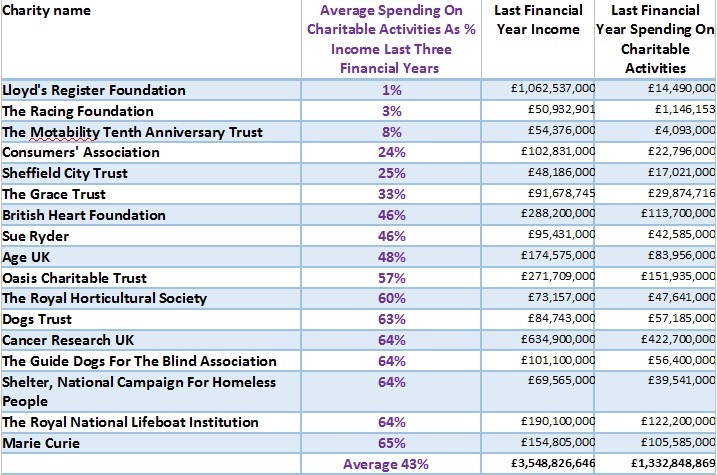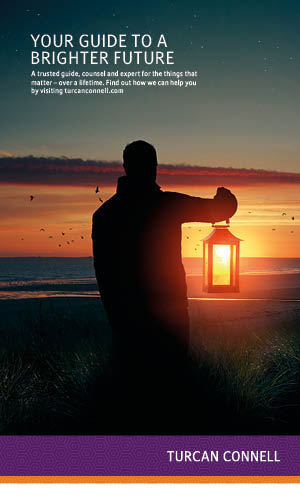NEWS

Massive rowing races boost for cancer charity
Cancer Research UK is to receive a massive publicity and donation boost from the decision by BNY Mellon and it subsidiary Newton Investment Management, sponsors of the Boat Races (the men's and the women's) to donate their title sponsorship of the annual challenge between Oxford and Cambridge Universities to Cancer Research UK, the official charity partner.
The event will now be known as the Cancer Research UK Boat Races with a new identity that will incorporate the dark blue of Oxford and light blue of Cambridge with the charity’s magenta and blue. The campaign will see Cancer Research UK receive substantial exposure throughout the races.
BNY Mellon and Newton Investment Management will work together with Cancer Research UK to support fundraising activities leading up to the races, and will also be implementing their own initiatives with all fundraising in aid of Cancer Research UK.
Curtis Arledge, vice chairman and investment management CEO of BNY Mellon, says: "Just as the four crews from Oxford and Cambridge will pull together to battle for glory on the water, we and Cancer Research UK are pulling together to fight cancer.”
This support for Cancer Research UK parallels the charity's Great Row fitness challenge with participants using indoor rowing machines.
Charity websites not hitting the mark
Charity websites could be doing a lot better according to a report by digital agency Sigma, entitled The third sector online experience - who's hitting the mark. The report tested 10 randomly selected charity websites and scored each website overall out of a possible 25. On average, the websites were scored at just 13.55.
The 10 websites and their scores were as follows: Citizens Advice (19), The Prince’s Trust (17), Victim Support (16.5), British Medical Association (16.5), Age UK (15.5), Step Change (13) War Child (11), Trafford Housing Trust (11), Business in the Community (BITC) (10), and SportsAid (9).
Sigma looked into the quality of the user experience across each site, looking at overall usability; the accessibility for all users, including those with physical, cognitive and visual disabilities; the mobile-friendliness, and the self-help functions of each website.
Just two out of the 10 websites tested have their own app, and four didn’t have layouts that are mobile-friendly. This approach means that some of these websites are near impossible to navigate on mobile devices.
Hilary Stephenson, managing director at Sigma, says: “We know that in the charity sector a website can boost donations, recruit support, convey a charity’s messages, provide an overview of important services, and offer access to resources like training. However, throughout the research for our report, we found that there is scope for improvement in this area across much of the charity sector.
"We understand that there are challenges for smaller organisations, but an investment in digital of any size can offer great returns for charities small and large."
Says Stephenson: “Mobile was one of the things that surprised us the most in our findings. As the digital world is increasingly moving further towards mobile, and a huge amount of charity traffic comes through mobile social media app referrals, charities at the very least need to have a mobile-friendly website. We found that just two out of the 10 websites we looked at had their own app, and four out of the 10 didn’t have responsive or adaptive layouts - crucial for a mobile-friendly site.
"For SportsAid, Age UK, Trafford Housing Trust, and Business in the Community (BITC) in particular, their approach to mobile means that it’s near impossible for users to navigate their website on these devices. And this is a big problem if they want to improve user engagement and encourage greater online self-service.
“Embracing trends isn’t something that is at the top of the priorities list when it comes to charity budgets – and understandably. As technology is taking over a lot of aspects in our everyday lives, the charity sector mustn’t fall behind.”
Charities should adopt a new approach to legacies
A new approach to off-the-page legacy advertising is required, according to charity marketing and communications guru Andrew Papworth in his Harvest monthly briefing. He is not convinced that the “We’re a good cause so remember us in your will” strategy is wise. He supports the "well-rehearsed argument" that dedicated legacy ads have a very small chance of success because they depend on hitting readers at one of the very rare moments in their lives when they are willing to contemplate making or changing a will.
Says Papworth: "There is far too much of a silo attitude between legacy and fundraising departments. The recruitment of leads for legacies should be part of the remit of the fundraising departments, leaving the legacy departments to follow up the leads with specialist help, advice and support."
According to Papworth, at the lead-gathering or recruitment stage, giving via a legacy should be treated as just one other way of showing support along with one-off or regular donations, membership or sponsorship schemes, volunteering, etc. He would go so far as to say: "No fundraising ad should be approved without at least a tick box through which to ask for information about legacies. This would vastly increase the chances of confronting people with access to legacy information at one of those brief critical moments."
Trust problem for charities prevents donations
Over half of Britons do not trust charities, according to a study conducted by money saving website Voucher Codes Pro, with only 38% of Britons polled saying that they donated to charity in 2015. Furthermore, a quarter said they "don’t think the money is used as they say it is", whilst 21% said the "charity sector is too saturated".
Those who said that they did donate donated an average £350 per person throughout the twelve months.
The top five reasons given by the 62% who did not donate to charity in 2015 were:
- I don’t trust any charities – 51%.
- I cannot afford to give my money to charity – 33%.
- I don’t know who to donate money to for the best – 24%.
- I don’t see the point in donating to charities – 18%.
- I’d rather spend my money on myself – 11%.
Respondents who did not trust charities said this was because:
- I don’t think the money is used the way it should be – 27%.
- The charity market is too saturated – 21%.
- It isn’t clear what I’m donating for – 19%.
- I don’t like being approached in the street by charity collectors– 14%.
- I don’t know when collectors are authentic and when they are fake – 6%.
George Charles of Voucher Codes Pro says: “I think it is both a shame and worrying that Britons seemingly do not trust charities. There are a number of charities in the country which do fantastic work helping the lives of others every single day. What’s not to be trusted? Maybe charities in the UK need to be clearer about what they are fundraising for and where the money will be used in order to regain the trust of Britons.”
Lack of charity spending on charitable activities condemned
Highly critical conclusions based on research into the effectiveness of charity spending, i.e. on front line charitable activities, have caused a furore within the charity sector, and come at a time when the sector appears to be under constant attack from a variety of critics, including MPs and the press. The report has been strongly rejected by the charity establishment, including the Charity Commission.
The research, A Hornet’s Nest. A Review of Charitable Spending by UK Charities, finds that 17 large charities with an annual £50m+ per annum income spent on average only 43% on charitable activities. 292 charities, with a combined income of £2.4bn spent 10% or less on charitable activities.
The True and Fair Foundation, originally known as Miller Philanthropy, started by philanthropist and vocal transparency campaigner Gina Miller, analysed 5,543 charities with a total combined annual income of £40.7bn, with the aim of discovering how much of their income was spent on the end charitable activities.
It is stated that the research team was staggered to find 292 charities, with a combined income of £2.4bn, spent 10% or less on their charitable activities according to analysis of data from the Charity Commission’s websites.
The research team also identified 17 of the UK’s largest charities which on average spent 65p or less of every pound of income on their charitable activities. According to the team's findings, three of the charities - the Lloyd’s Register Foundation, the Racing Foundation and the Motability Tenth Anniversary Trust - with a combined annual income of £1.2bn spent just £20m between them on charitable activities. Below are figures given in the report's findings:

The research discovered what are claimed to be data errors on both the existing and new "Beta" Charities Commission’s websites even though, says the report, the new Beta search tool website aims to prominently and simply display income and expenditure. The research team make the comment: "The Regulator’s online data is meant to be ‘the authoritative source of information on charities in England and Wales’. Registered charities’ details are viewed online over six million times a year, but it now transpires much of this data is either incorrect or out of date, or sometimes both."
The True and Fair Foundation says that its findings pose serious questions for the charity sector:
- Should there be an urgent review of the rules that allow organisations to be granted charitable status? Especially as this status tends to result in tax benefits such as reduced business rates, VAT, stamp duty, capital gains, tax on dividends, and being granted Gift Aid. All of which deplete the public purse.
- Should there be a periodic three year review of organisations’ charitable status?
- Is it now time for a voluntary or mandatory minimum annual dispersal rate set for charities? It is the view of the True and Fair Foundation that a minimum annual dispersal rate of 65% should be debated.
- Is there a need for a simpler accounting methodology to enable greater understanding of a charities’ finances?
- Is it time to impose a "Give & Good label" across the charity sector which would clearly allow donors to see how much of annual income is being spent on the end charitable activities?
- Does the sector require more financial oversight and accountability?
- Why are donors - private, corporate and government - not asking more questions about the charitable work being delivered by charities?
- Should there be limits on senior executive remuneration, including pension provision?
Gina Miller, founder of the True and Fair Foundation, says: "As the state continues to shrink, the charity sector will become even more pivotal to society. But this does not excuse many of the excesses and inefficiencies that appear so prevalent within this sector.
"It is an utter disgrace that so much of the money people generously give is going to feed large charity machines, which are often characterised by obscene overheads and salaries, aggressive fundraising, and bloated marketing and publicity departments; resulting in questionable levels of charitable spending.
"The other travesty is that the army of extraordinary small and medium size charities who form the backbone of our communities, are being drowned out by some of these extravagant and grossly inefficient big brand charities. It is time a light was shone on the sector so people can see just how their hard earned money is really being spent by all charities. There are too many examples of charities of all sizes failing to remember that they exist for the sake of their beneficiaries, not the staff.
"In my view the charity sector should be regulated as much as the wider financial sector as it has an estimated income in England and Wales of £64 billion, £13 billion of which comes from government and is therefore public money. All donors, public, corporate and private need to have the information to judge whether their money is being properly spent."
Sir Stephen Bubb, chief executive of ACEVO, has responded as follows: "I find bizarre the accusations made by the True and Fair Foundation about the use made by charities of their money. Have people learnt nothing from the collapse of Kids Company? Spending every penny on the front line of a charity leads to collapse. Money spent on good governance and leadership, fundraising and campaigning is central to charities’ survival.
"Rob Wilson, the minister for civil society, is also wrong to suggest that charities should 'eke out every last penny for good causes'. He should be aware of the need to ensure the means of survival for charities, upon which not only the vulnerable but the Government depend."
The report, which is based on data from the Charity Commission and Companies House, highlights what it perceives as various unacceptable situations such as: one community charity with significant local and central government money spending as little as 25% on average on charitable works over the last three years; another charity with key safety and rescue functions employing 1,170 people in the front line but as many as 503 employees in non-front line roles.
Then there is a charity employing 3,164 in front line critical care, but as many as 1,179 in non-front line roles - 441 alone in fundraising; another charity with more than 2,000 employees directly employed in fundraising; and there are two charities where it appears that the amount it cost for them to raise funds was greater than the charitable activities they conducted.
The Charity Commission has stated: "This report has not...considered basic information in the charities’ accounts, which has led to this flawed analysis. The Commission has looked at the accounts of the charities named and we would recommend anyone interested in charity finances does the same.”
The True and Fair Foundation has responded to this and much other criticism by saying: "The report analyses one statistic in detail, the amount of income spent on charitable activities. This is the exact same statistic, calculated with exactly the same methodology, as used prominently by the Charity Commission itself on the summary page of each charity on its own website launched March 2015 and viewed six million times in terms of web visits by the general public."
Unions criticise charity senior executive salaries
At a time of growing criticism of charity senior executive salaries, a new attack on them has emerged during a pay dispute at Action for Children.
The Unite and Unison unions say that management intends to impose a 1% pay award for 2015/16, with no cost of living rise for 40% of the 5,000 strong workforce. They say that management also intends to remove contractual pay increments for new starters, refuses to pay the UK living wage of £8.25 (£9.40 in London) and cut mileage rates.
With industrial action in the offing, the unions point out that "while squeezing the pay of the workforce", the number of senior executives at the charity earning over £70,000 a year increased from 16 to 21, and there is now an additional member of the management team on £120,000.
The unions say that in the last three years Action for Children has made an average surplus (profit) of £5.4m each year, while it would have cost about £2m a year to have given each member of staff a cost of living pay rise in line with inflation.
Unite national officer for the not for profit sector Sally Kosky says: “What we have here is an all too common case of a profitable organisation, with highly paid executives, unwilling to give a decent pay rise to our members."
Unison national voluntary sector officer Simon Watson says: “Action for Children claims that it is strapped for cash, yet it has managed to find the money to increase the number of its highest paid managers. Meanwhile staff haven’t had a pay rise in six years."
Small charities need to focus on fundraising reform
The results of a survey run by the Institute of Fundraising (IoF) and the Small Charities Coalition (SCC) show that almost half of charity respondents (45%) are "not very familiar" or "not at all familiar" with the review of fundraising self-regulation conducted last summer. The review of fundraising conducted last year called for a new fundraising regulator to be established, with stronger sanctions and universal application across all fundraising charities.
The results show strong support (from over 80% of charity respondents) for the review’s key recommendation for self-regulation with a stronger relationship with statutory regulators. However, say the IoF and SCC, a lack of familiarity among smaller charities with plans coming into effect for future fundraising regulation which will affect them demonstrate that more and better engagement with smaller charities is vital.
Add the IoF and SCC: "With a stronger regulator being established which will have universal application across all charities we believe that there is significant work needed to raise awareness of the forthcoming changes to all charities."
According to the survey, the issues of public trust and confidence are being felt differently across smaller charities. 49% said that there had been "not very much" or "no" impact on their organisation, while 46% said there had been "some" or "a great impact".
Smaller charities are most concerned about the administrative and cost burden of a Fundraising Preference Service. 59% thought that it would lead to "an increased administrative burden", and 59% thought that it would be "likely to result in increased cost for checking against a suppression list", and over half (54%) thought that they would have to train staff to check contacts. More respondents thought that it would result in a drop in donations (40%) than would result in a "better public image" (29%).
There seems to be a general agreement that stronger sanctions are needed. 52% think that the new regulator should be able to issue "cease and desist" orders on fundraising activity; and 43% think that it should be able to issue compulsory training orders. The least popular possible sanction was "clearance of future campaigns" (16%).
The most popular option for the funding of the new regulator was for it to be "funded by charities which fundraise from the public and which spend more than £100,000 on fundraising" (38%) – though it should be noted that almost as many (34%) thought that funding should come from government.
While a fifth of respondents (21%) thought that the greater oversight of trustees would have "a great deal" (6%) or "quite a lot" (15%) of impact on their organisation, 72% said that trustees already play a clear role in or contribute to and set strategy for fundraising.
John Barrett, chief executive of the Small Charities Coalition, says: “With over 150,000 registered small charities in England and Wales, and thousands more who are too small to register, it is essential that the views of these organisations are taken into account during fundraising regulation reform. It is important to remember that the potential changes will have a disproportionate impact on smaller charities, as they will inevitably find it harder to comply than larger and better resourced charities. Therefore, the system needs to be affordable and compliance simple."
Stephen Dunmore, chief executive of the Fundraising Regulator, says: “As we work to establish a new fundraising regulator, it’s essential that we hear and take on board views across the full range of fundraising organisations. Smaller charities make up the vast majority of the charities in the UK and have a significant role to play in helping to shape and inform the working practices of the new regulator. I have read with interest the results of this research."
Corporate volunteers to call the elderly
Watco, the manufacturer of industrial strength flooring products, has entered into a two year commitment to participate in Age UK’s national telephone befriending service. A minimum of ten Watco staff will take part in this initiative, with training provided by Age UK, which will pair staff up with suitable elderly partners based on shared interests.
Many of the staff already spend a great deal of time on the phone as part of their day to day roles, so this telephone befriending service will integrate easily into their working day.
Age UK’s Call in Time Programme is a national telephone befriending service. 800 friendship calls are made every week by corporate volunteers to lonely and isolated older people. Each volunteer makes just one 20-30 minute call a week.
Watco marketing director Jeremy Neaves has been involved with Age UK in the past, so supporting this initiative was a natural step to take. He says: “There are far too many elderly people in the UK who are suffering from loneliness and by committing to a 30 minute call to make someone's week is little in terms of cost to the employee.”

Call for gardeners to help zoo charity
Local gardeners in the East Midlands are being asked to donate plants and foliage to Twycross Zoo for consumption by its animals. This is all part of a campaign by the charity for its supporters to donate items from its Amazon Wish List that go directly towards maintaining enclosures and providing the animals with hours of enrichment and entertainment.
Items range from boomer balls for bonobos (chimpanzees), bubble makers for the penguin pool, catnip for the snow leopards and bird feeders for the parrots, to drills and ladders to help the keepers fix items in and around enclosures. The zoo is also interested in hearing from local gardeners who may have surplus branches and foliage, known as browse, in their gardens that would be suitable for animals such as the giraffes.
Charlotte Macdonald, director of life sciences at the zoo, says: “Our male giraffes Brad, Setanta and Epesi need browse leaves and branches as part of their diet, which we hang up high in their house for them to strip. Plants such as nettles, hawthorn and fruit trees are all used from around our zoo site, but are in less supply in the winter. If anyone local to the zoo is clearing out their gardens or allotments and thinks they have some we would be very interested in hearing from them.”
When it comes to other food, Twycross Zoo’s animals are well stocked with generous supplies from Ocado as part of its efforts to reduce food waste. The company regularly delivers fruit and vegetables to the zoo which make up a significant part of its ape, monkey and lemur diets, while local farmers have been donating bales of hay to the elephants, goats and sheep. This food is chopped and prepared in the zoo's new animal kitchens, funded by a donation and fitted with donated kitchen and catering equipment.

Hospice gardens to be given professional makeover
Two hospice charities have won competitions based on community nominations which will bring them makeover gardens from branches of Wyevale Garden Centres. Both competitions were launched in October 2015 with a view to giving something back to the community through transforming two garden spaces that mean something to locals. The competitions ran until mid-December 2015, with visitors to both garden centres casting votes for their favourite community group to win the opportunity of a garden makeover.
The winner of the Pennine Wyevale Garden Centre competition was Kirkwood Hospice, a local Kirklees hospice providing palliative care to the terminally ill, while Birchencliffe Wyevale Garden Centre's top prize went to Forget Me Not Children’s Hospice, a charity which supports children with life shortening conditions and their families in West Yorkshire.
As the winning community groups, Kirkwood Hospice and Forget Me Not Children’s Hospice will each receive a new garden just in time for summer. A team of volunteers from Birchencliffe and Pennine Wyevale Garden Centres will work respectively with a local landscape designer to transform their green spaces into beautiful outdoor havens – to be enjoyed by residents and visitors alike.

Sell-out success for Scottish disability charity
Disability charity Spina Bifida Hydrocephalus Scotland celebrated its 25th anniversary Burns Supper, “A Question of Burns”, with a sell-out event raising over £50,000, breaking its previous fundraising records.
Almost 500 guests joined the charity at Glasgow’s Radisson BLU Hotel. Scottish international rugby player and TV commentator Andy Nicol hosted the evening and led guests through speeches, poetry, Scottish fayre and a quiz on all things Rabbie Burns.
Sheriff Lindsay Wood and comedian Karen Dunbar presented the Toast to the Lassies and its reply, while Lord Robertson of Port Ellen delivered the Immortal Memory. Classical singer and SBH Scotland ambassador Nicola Cassells closed the night with a rousing rendition of Burns’ Auld Lang Syne.
SBH Scotland’s annual evening in honour of the Scottish Bard has raised over £1 million since the event launched in 1990.
The evening was sponsored by luxury jeweller and diamond retailer Chisholm Hunter, who donated a white gold and diamond necklace and 10 fashion watches as the grand raffle and quiz prizes.
Harry Brown, managing director at Chisholm Hunter, said: “It’s a privilege to have been involved in this event and I hope our help goes some way towards supporting this outstanding charity in delivering its work to those in need.
“The fundraising event was very successful and it was fantastic to see so many people come together to support this worthwhile cause.”
This year also marks the 50th anniversary of SBH Scotland which supports over 3,500 children, young people, adults, their family members and carers every year in Scotland.
IN BRIEF
KENT CHARITY. The Furley Page Foundation, set up by Kent law firm Furley Page, has chosen the Strode Park Foundation as its charity of the year. Strode Park Foundation is one of Kent’s leading providers of specialist care and leisure services for children and adults with disabilities. Launched in 1946, it also provides training and support to young adults with physical or learning disabilities to enable them to lead a more independent lifestyle.
RETAIL FUNDRAISER. Retail charity Retail Trust raised over £1 million at its 63rd annual celebration dinner at Billingsgate. Sponsored by American Express, XPO Logistics and Dransfield Properties, the dinner was attended by celebrities and big industry names including fashion entrepreneur Harold Tillman, former England rugby union captain Phil Vickery and retail legend Don McCarthy. Guests were treated to a night of non-stop entertainment hosted by radio’s Dave Berry. including sets from musical comedian Kev Orkian, DJ Benny Blanco and X Factor favourites Alien Uncovered.
APPOINTMENTS. Variety, the Children's Charity has elected Pamela Sinclair as chief barker. Impetus - The Private Equity Foundation has appointed Andrew Ratcliffe as chief executive from April when he leaves his job as deputy CEO of the Africa Governance Initiative. Young Enterprise has appointed Michelle Benson as director of development, from the School for Social Entrepreneurs where she held the same position.
MORE APPOINTMENTS: Rewilding Britain has appointed David Balharry as Scotland director, from the agriculture and rural development division of the Scottish Government. Disability charity Shine has promoted Kate Steele from acting CEO to permanent CEO. Farm Africa has appointed Nicolas Mounard as chief executive, from being managing director Twin and Twin Trading. Cancer Research UK has appointed Nick Gaynor as director of philanthropic partnerships and development; he was formerly an investment banker with Deutsche Bank and Goldman Sachs.
FURTHER APPOINTMENTS: The Multiple System Atrophy Trust has appointed Karen Walker as its first full-time CEO, from being interim part-time CEO. Tree of Hope, which helps the families of sick and disabled children, has appointed Gill Gibb as chief executive, her previous roles being chief executive of the Canterbury Oast Trust and managing director of the Charity Employees Benevolent Fund.
END OF ARTICLE





